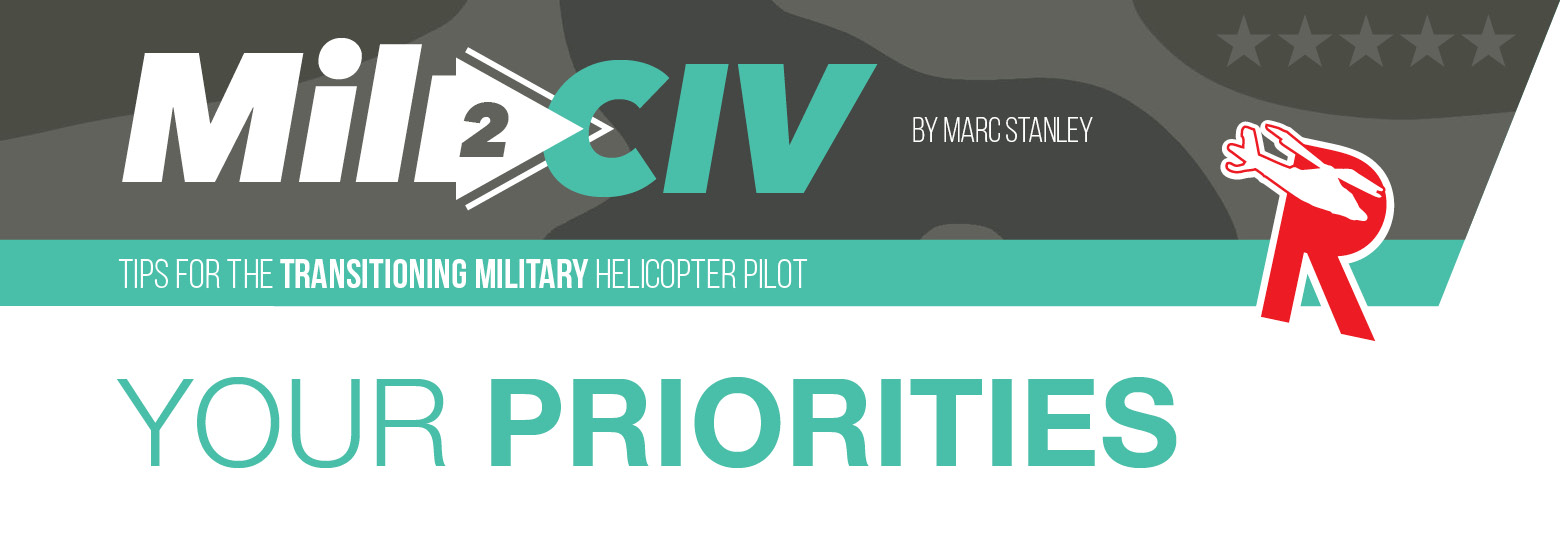|
Jan
04
2021
|
|
Posted 5 years 54 days ago ago by Admin
|
|

I was stationed in DC in February 2014 and traveled to Denton, Texas, with two military buddies to get our helicopter ATPs. While in Denton, we went to dinner with my friend, Nico, who had transitioned a year or two before and was flying air ambulance in the DFW metroplex. At dinner the three of us eagerly asked Nico a lot of questions about his transition, finding a job, and his experiences in the civilian helicopter industry. One of the many tidbits of knowledge Nico was sharing really stuck with me; it’s very simple, but genius at the same time.
When it comes to any job, there are always three things: equipment, pay, or boss. If you are lucky, you’ll get two out of three! In later conversations, Nico added two more: location and schedule.
Basically, you might have a good paying job with an amazing aircraft that you love flying, but unfortunately you might have a boss that could use some management and leadership classes. Unlike the service where either you or your boss moves every two years, in the civilian industry, you could have the same boss for the next 20 years. Another example would be that you have a great aircraft, in a great location, but that pay is too low. There are multiple combinations, but it boils down to two out of three!
So what does that mean to you, when you are looking for that first job coming out of the military, or even searching for your next job after being out of the service for several years? When looking at these five options (pay, location, equipment, schedule, and boss) you, or you and your family, need to prioritize the order of these that is most important and then reference that list when you are searching for that next career. I can’t tell you which order is correct; this is your decision and your priorities.
If a specific location is top of your list, then you are going to exclusively look for jobs in that area. Yes, sometimes this does limit your options, but these are your priorities you chose. Another example of this would be equipment, let’s say you flew Blackhawks in the service and want to continue to fly them in your next career. Then the best options are to look at getting a job in the firefighting industry or go back to working for the government flying for Customs and Border Protection. There are multiple examples that could be made.
The main thing to remember is that each choice you make about your priorities will have positives and negatives. They can lead to other great opportunities or not. However, your list of priorities will always be changing, and you should constantly reference and recategorize them. Also, ask people in the industry about their priorities when it comes to looking for a new job, this could give you great insight into a thought pattern you have not considered.